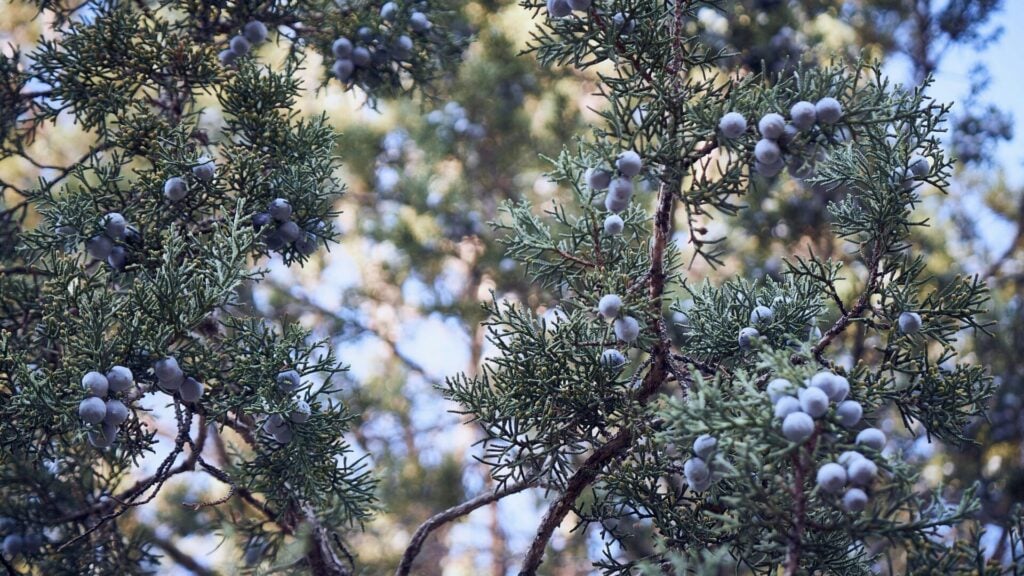The flavour of a gin and tonic may be impacted by the climate change crisis according to new research.
Volatile weather patterns, made more likely by climate breakdown, could change the taste of juniper berries, which are the plant that give gin its distinctive taste and could make the range of drink less or more floral, sweet, citrus, woody, earthy or musty than its traditional flavour.
Scientists from Heriot-Watt University’s International Centre for Brewing and Distilling (ICBD) found that changing weather patterns may be altering their flavour compounds.
The berries have their own regional taste and texture just like wine, depending on rainfall and sunshine, according to the findings, which have been published in the Journal of the Institute of Brewing.

Matthew Pauley, an assistant professor at the ICBD, said: ‘A wet harvest year can reduce the total volatile compounds in juniper by about 12 per cent compared to a dry year. This has direct implications for the sensory characteristics that make gin taste like gin.’
The Science Behind Shifting Gin Flavours
Premium gin producers carefully select their berries from certain regions to maintain a distinctive taste and house style, but this may be disrupted by climate patterns changing, and some areas getting more rainfall than others.
Scientists distilled juniper berries from different regions across Europe including Albania, Bosnia, Macedonia, Montenegro, Serbia, Kosovo and Italy, as well as from varying harvest years. They analysed the resulting spirits using gas chromatography – a method that separates and measures individual flavour compounds – to see how the berries’ chemical profiles were affected.

They found that berries from each region had distinct chemical profiles, and these variations could influence the woody, resinous, citrus and floral notes in the gin. Weather patterns also had a major impact: in years with higher rainfall, the berries required longer drying periods, which altered the levels of water-soluble flavour compounds and, in turn, affected the overall taste.
Prof Annie Hill, the study’s supervisor, said: ‘The least water-soluble compounds are most affected by post-harvest drying. For distillers, this means the flavour profile can shift depending on the harvest conditions.
‘For a multibillion-pound industry, which is increasingly focused on consistency and quality for its discerning consumers, this represents a risk.’









